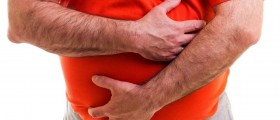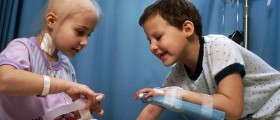
Overview
Every person can experience abdominal pain, but it is more common in children and adolescents. Almost 15% of all children experience it. When boys are considered, they experience the pain between the ages of 5 and 6. On the other hand, girls experience it between those ages as well but between years 9 and 10 as well. In most cases, the pain goes away on its own but there are possible treatments if the pain persists.
Causes
Organic disorders are such conditions that can be identified in the body. The most common cause of recurrent pain is constipation. Intestinal problems like heartburn, ulcers and lactose intolerance, and muscle and bone pain are known to cause abdominal pain as well. Urinary tract infection and IBD can also be the cause but these situations are rare.
Signs and symptoms
Some of the most common signs of abdominal pain are the pain that is so strong that it awakens the child, blood in stool, severe vomiting, diarrhea, constipation or bloating, sudden weight loss, slowed growth, pain during urination and abdominal tenderness.
Parents should also know that functional disorders like functional dyspepsia, irritable bowel syndrome and abdominal migraine are known not to have causes that can be identified.
Diagnosis
First of all, the doctor will need to know the medical history of the child. Apart from this, the doctor will also perform a physical exam. In some cases there is need for certain tests, like blood tests. A good advice for parents is to keep a pain diary.
Treatment
In cases when the cause of pain is due to organic disorder, it will be further investigated and the doctor will come up with a treatment plan. However, parents need to know that abdominal pain is in most cases caused by a functional disorder. There are several treatment plans that will help in this case. The main goals in these treatment plans are to get the child back to his or her normal activities and to reduce the pain. Stress can only make the situation worse, so a child can sometimes benefit from behavioral and relaxation therapies. A parent should spend every day some time with his or her child. Positive attention is important. It is not uncommon for the state of the child to improve after some dietary changes have been made. Children should avoid the consumption of high-fat foods, caffeine and foods that increase gas.
In situations when a child experiences bloody stools, severe and long-lasting abdominal pain, extremely high fever, pain during urination, behavior changes, loss of appetite and chronic constipation, the parents need to take the child to the hospital.

















Your thoughts on this
Loading...